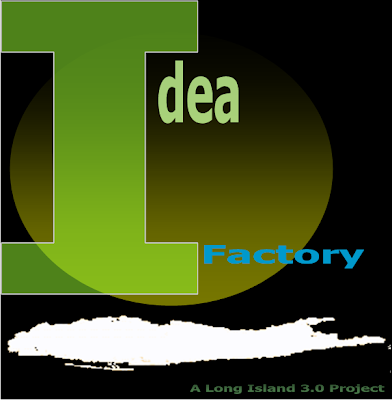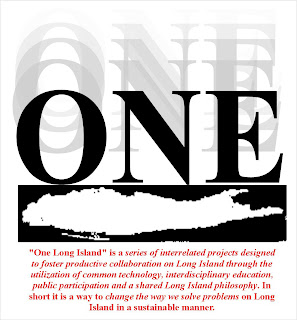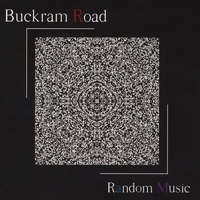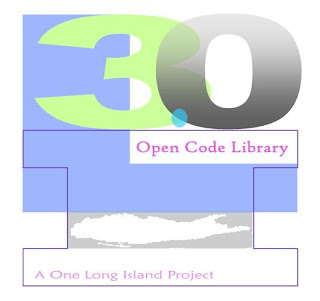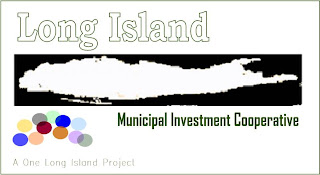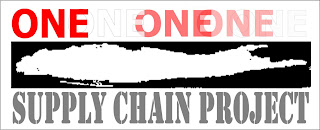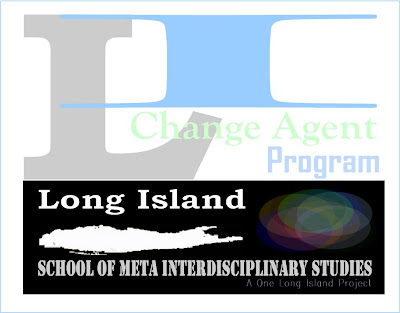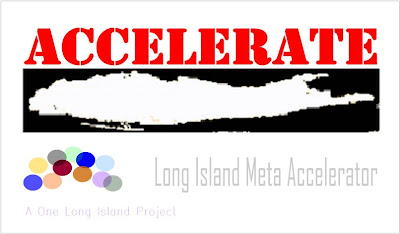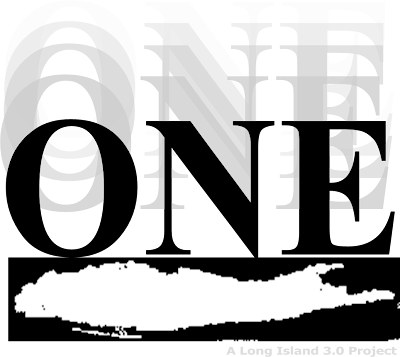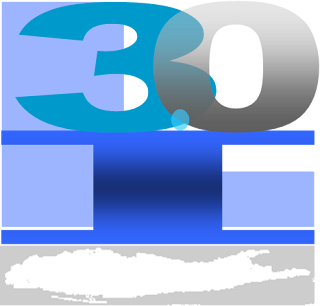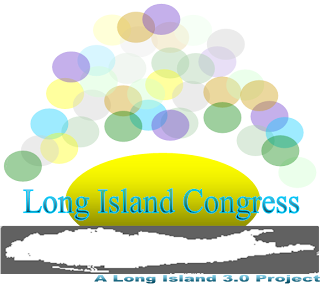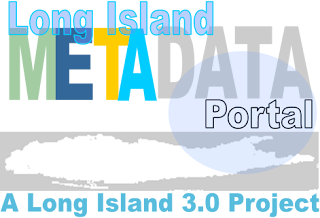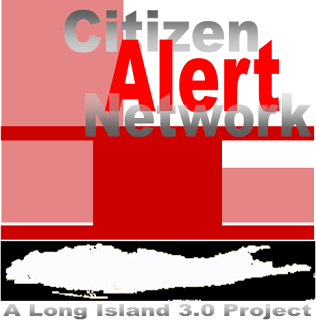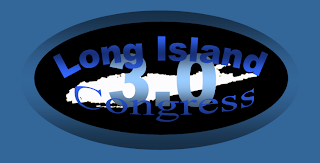Interesting article here about a renewed effort to create the State of Long Island.
We've already pointed out a few previous efforts.
The idea has merit, if only as a serious intellectual exercise for now. So let's put some of Long Island's universities and organizations to work on the idea and vet it completely. Good job for a Long Island Community Congress (or Virtual Long Island Constitution, Long Island Virtual Community Congress or Long Island Virtual Think Tank).
How about a Long Island Virtual Constitutional Convention?
This is a perfect opportunity to discuss all of the "One Long Island" concepts and all of the other great ideas out there for creating a new Long Island.
Because it only makes sense to create the State of Long Island if we are going to do it in a new and different way.
To replicate what we have now or base it solely on existing New York State government organization and existing Long Island organizational structures makes little sense and will only perpetuate existing problems.
But let's have a serious discussion and see what we can come up with. Even if a new state isn't the final outcome, this exercise might provide valuable insight into how sustainable, positive change may occur on Long Island.
Who knows? This time five or ten years from now we may indeed have the State of Long Island.
Friday, March 28, 2008
Long Island School of Meta-Interdisciplinary Study: Lesson One
We've posted previously about the need to create an environment where we can all learn to think in a "cross disciplinary" manner.
Meta-interdisciplinary simply means you are exhausting all possible means of determining the correct public policy by leaving no one or no possible solution or idea out of the equation.
Here is a simple exercise.
Take 100 randomly selected "things" (concepts, ideas, existing programs, physical structures what have you) and put them on index cards. Next, select five cards. Create three possible connections (collaborative activities) between all of the five cards selected.
As you get more adept at the process increase 100 to 200, five to ten, three to five and so on until your brain starts to hurt. Now we're thinking "out of the box."
If you are a software savvy, there are "randomizer" programs out there that connect to databases to achieve the same results.
It doesn't matter that some or most of the ideas won't work. That isn't the purpose of the exercise.
The purpose of the exercise is to get us to think differently.
The purpose of the exercise is to break the "cycle of stagnation" we've talked about on a number of occasions.
More in Lesson Two.
Meta-interdisciplinary simply means you are exhausting all possible means of determining the correct public policy by leaving no one or no possible solution or idea out of the equation.
Here is a simple exercise.
Take 100 randomly selected "things" (concepts, ideas, existing programs, physical structures what have you) and put them on index cards. Next, select five cards. Create three possible connections (collaborative activities) between all of the five cards selected.
As you get more adept at the process increase 100 to 200, five to ten, three to five and so on until your brain starts to hurt. Now we're thinking "out of the box."
If you are a software savvy, there are "randomizer" programs out there that connect to databases to achieve the same results.
It doesn't matter that some or most of the ideas won't work. That isn't the purpose of the exercise.
The purpose of the exercise is to get us to think differently.
The purpose of the exercise is to break the "cycle of stagnation" we've talked about on a number of occasions.
More in Lesson Two.
Tuesday, March 25, 2008
Updates ...
Putting the finishing touches on the first "One Long Island" real word project. Never easy when coordinating large organizations, but hopefully it will get easier as more of the "One Long Island" principles are put into place.
In the meantime, here is a new piece for piano I've been working on in my spare time.
More updates (and ideas) soon.
Friday, March 14, 2008
Wednesday, March 12, 2008
Long Island Internet Referendum Initiative: Part Two
OK, so in part one I gave you a logo and you thought, is that all there is? Well no, but sometimes life intervenes between my thought processes and the computer keyboard so here is a little more info for now.
In 1993 or thereabouts I proposed a Community Congress as a part of the whole Oyster Bay 2000 concept to facilitate cooperation between the various organizations.
I don't know about you, but I find it unacceptable and a bit unnerving that in this day and age accurate, dynamic public information still seems to be difficult to maneuver. How do you ever know what is true? How can you possibly make good public policy like this?
This is one of the reasons for the whole "One Long Island" series of concepts we've been promoting for the last year or so.
What if, using the great minds we have at our local universities, designed an secure, verifiable, easy to use, public referendum model for the Internet and integrated it into the "Long Island Meta Data" concept and the other One Long Island concepts we've been promoting? (It should be noted that all One Long Island projects are designed to work with all other One Long Island projects or subgroups of One Long Island projects).
At first it can be used to gauge public sentiment on public policies but eventually it can be turned into a full blown "Internet Voting" module.
Good for Long Island public policy and potentially a boon for the Long Island economy as an exportable product or service.
More in part three.
In 1993 or thereabouts I proposed a Community Congress as a part of the whole Oyster Bay 2000 concept to facilitate cooperation between the various organizations.
I don't know about you, but I find it unacceptable and a bit unnerving that in this day and age accurate, dynamic public information still seems to be difficult to maneuver. How do you ever know what is true? How can you possibly make good public policy like this?
This is one of the reasons for the whole "One Long Island" series of concepts we've been promoting for the last year or so.
What if, using the great minds we have at our local universities, designed an secure, verifiable, easy to use, public referendum model for the Internet and integrated it into the "Long Island Meta Data" concept and the other One Long Island concepts we've been promoting? (It should be noted that all One Long Island projects are designed to work with all other One Long Island projects or subgroups of One Long Island projects).
At first it can be used to gauge public sentiment on public policies but eventually it can be turned into a full blown "Internet Voting" module.
Good for Long Island public policy and potentially a boon for the Long Island economy as an exportable product or service.
More in part three.
Tuesday, March 11, 2008
Monday, March 10, 2008
Saturday, March 8, 2008
Interesting reading ...
"Put simply, Long Island is not creating the right environment for technology entrepreneurship. And Long Island is not creating the right companies - not enough of them, anyway - the ones that will create jobs and spawn spinoffs."
It seems that a more comprehensive, collaborative approach is taking shape in the "technology community" on Long Island. That's a good thing.
We still need to broaden the scope of our thinking however.
There is still a tendency to maintain a "silo" effect for the different disciplines, when in reality they all have a lot in common and a lot to offer one another.
We require, among other things, a common Long Island Philosophy and shared accurate information to get the ball rolling.
The One Long Island series of concepts is designed to help accomplish those tasks.
It seems that a more comprehensive, collaborative approach is taking shape in the "technology community" on Long Island. That's a good thing.
We still need to broaden the scope of our thinking however.
There is still a tendency to maintain a "silo" effect for the different disciplines, when in reality they all have a lot in common and a lot to offer one another.
We require, among other things, a common Long Island Philosophy and shared accurate information to get the ball rolling.
The One Long Island series of concepts is designed to help accomplish those tasks.
Tuesday, March 4, 2008
More on Green Business Acceleration ...
Here is another great site on "Green Business Acceleration."
It contains many additional excellent ideas as well.
It contains many additional excellent ideas as well.
Making the Transition: Part One
We harp quite a bit on structure the Long Island Idea Factory in the form of the One Long Island series of projects.
Why?
Because without the proper flexible, dynamic structure sustainable positive change is difficult to achieve.
I have my own ideas about what change is important, but so what?
No one person or organization has all the answers. We have to believe that with the correct structure and methodology the correct change will occur, in whatever form that change manifests itself.
So how to go about change? How do we transition from where we are to where we wish to be?
How do we go from mere rhetoric to substance?
How do we create a Long Island "meta-transition?"
More in Part II.
Subscribe to:
Posts (Atom)




